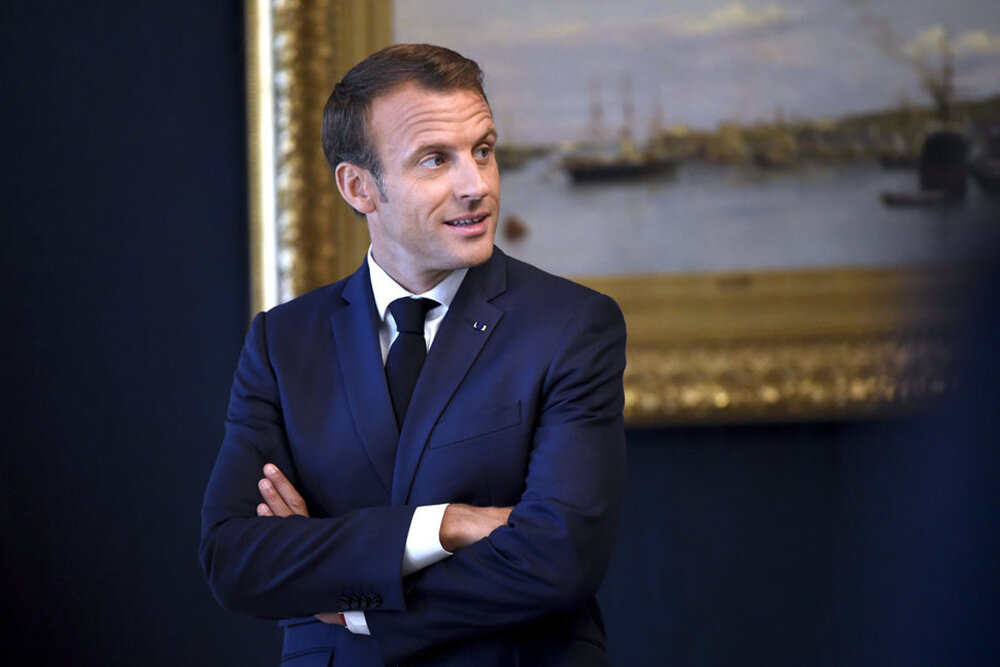Paris wishes to revive its colonial past: Turkish researcher

TEHRAN - Dogacan Basharan, a Turkish researcher, says France wants to play a key role in the events evolving in the eastern Mediterranean by filling the gap left in the region now that the U.S. is leaving the region.
The comments by the Turkish research comes as Paris is siding with Greece in the recent dispute between Ankara and Athens in the eastern Mediterranean.
Turkey and Greece have long disagreed over the extent of their continental shelves. Tensions rose in August after Ankara sent an exploration vessel into disputed waters, accompanied by warships, days after Greece signed a maritime deal with Egypt.
Basharan tells the Tehran Times that Paris wants to revive its colonial past, especially after the Beirut blast.
Recent developments show that France wants to fill the authority gap left in the regions as the U.S. is packing its bag, says Basharan, an expert on international relations.
This is the text of the interview:
Q: European Union foreign policy chief Joseph Borrell has warned that sanctions could be imposed on Ankara if talks on the eastern Mediterranean crisis fail. What is your comment?
A: Turkey is the European Union's eastern neighbor, and they have common borders. It's not possible that the EU can impose sanctions on Turkey. In that case, the Eurasian tendencies accelerate in Turkey's foreign policy. It will push Turkey towards more cooperation with Russia and Iran. This is why the European Union cannot impose sanctions on Turkey.
Q: Turkey has been trying to join the European Union for many years. But now the EU opposes Ankara's activities in the eastern Mediterranean. How much will this affect the process of Turkey's membership in the EU?
A: Turkey's objective is full membership in the EU. Because the goal of adjustment to a free-market economy is parallel with the vision to become a more democratic country. However, by using accession requirements as an element of pressure against Turkey, the EU wants to interfere in Turkey's domestic affairs.
It ignores sovereign rights. This issue was seen very clearly in the Cyprus issue and the tension over the eastern Mediterranean. Of course, Turkey will refuse to surrender to pressures from the West. So, it was predictable that the cold wind will blow in Turkey-EU relations in recent years.
Q: Turkey is getting entangled in disputes not only with Greece but also with France. What is the reason for the French opposition to Turkey's influence in the eastern Mediterranean?
A: France is not actually a concerned party in the problems of the eastern Mediterranean. It seems that Paris has missed its colonial heritage. In this context, they try to play a key role in the events in the eastern Mediterranean after the Beirut blast. However, there is no legal reason to intervene in this region.
On the other hand, it is known that the Trump administration wants to withdraw from the Middle East (West Asia). The U.S. criticizes EU countries for the cost of NATO. Recent developments show that France wants to fill the authority gap in the regions while the U.S. is reluctant to extend its presence there.
Q: In an article analyzing the eastern Mediterranean issue, Der Spiegel writes that Erdogan is in danger of being involved in a conflict with Greece. Do you think there is a possibility of a conflict between the two countries?
A: Greece is arming the islands aggressively. In the eastern Mediterranean, France, Israel, and Greece want to encircle the South through alliances with countries such as Egypt. This is not acceptable. Turkey does not allow its right to encroach.
Turkey wants to solve the problems in a diplomatic way. However, if Greece maintains its stance, there is a possibility of conflict.
Q: Do you see any possibility of solving problems between Turkey and Egypt?
A: Turkey is in favor of democracies everywhere in the world and never approves of coups. Therefore, Ankara's idealistic foreign policy pushes it to see the administration in Cairo as illegitimate. But Turkey should be able to disrupt the alliance of Greece. Turkey has to counter attempts to isolate it. This can lead to establishing relations with Egypt in terms of a realistic view. Turkey should be in contact with Egypt, Lebanon, and Israel.
Q: Do you expect a comprehensive solution in the Libya crisis?
A: In the medium and long term, the experiences in the Astana Process in the Syria case will be carried to Libya. Turkey and Russia support the different actors in the current situation. However, I think a compromise will be reached. Ankara and Moscow could be the architects of the Libyan peace.
Leave a Comment